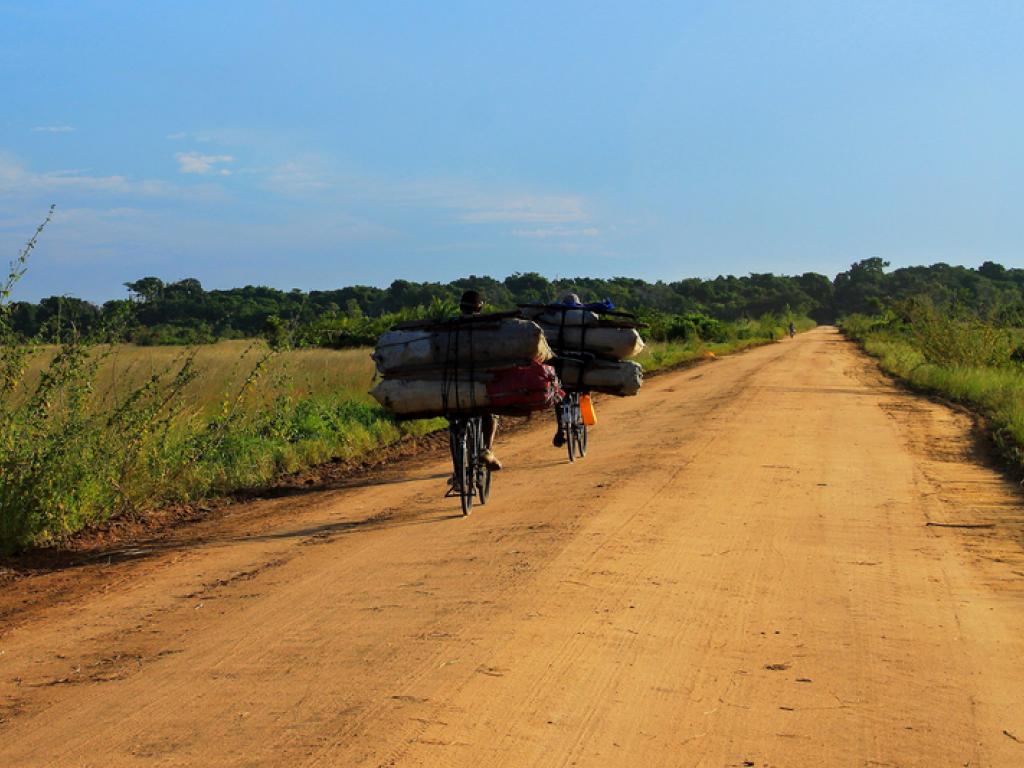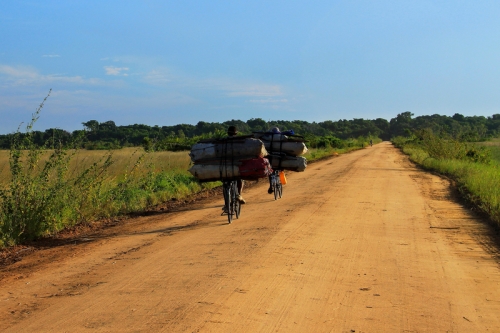Climate change and southern Africa’s emerging food crisis


UCT researchers are exploring whether the looming drought and food crisis in Mozambique, Zimbabwe and southern Zambia could be ascribed – at least in part – to climate change.
The early rains have failed this year amidst a multi-year drought in Mozambique, Zimbabwe and Zambia, leaving the countries at risk of a major food crisis. While the region has a track record of similar weather conditions over the past 140 years, is it possible that this looming disaster could be ascribed – at least in part – to climate change?
According to recent research led by Dr Piotr Wolski of the Climate System Analysis Group (CSAG) at the University of Cape Town’s (UCT) Department of Environmental and Geographical Science, the answer is yes.
Wolski is one of only a few researchers in South Africa with the skillset to discern the influence of climate change on extreme weather events, a field also known as attribution of extreme events to anthropogenic climate change.
“The type of research we conduct reveals whether a particular event has become more or less likely in the current as opposed to pre-industrial climate.”
“Essentially, the type of research we conduct reveals whether a particular event has become more or less likely in the current as opposed to pre-industrial climate,” he explains. For the current research, Wolski led a team of specialists in climatology and the region’s agriculture from UCT, University of Stanford in the United States, and New Zealand’s National Institute for Water and Atmospheric Research.
The water deficit
Wolski’s research was motivated by growing media coverage of the ongoing drought and subsequent threat of a food crisis in southern Mozambique, Zimbabwe and southern Zambia.
People living in the region, which is largely rural, depend heavily on subsistence farming for food.
“The whole food production system is strongly dependent on rainfall,” explains Wolski. “There are rainfall monitoring initiatives in place, and this is where the first warning came up of a water deficit due to the rainy season starting later than usual.”
Analysing all the available climate data for the region – dating back about 140 years – up until January 2020, Wolski found that because of high variability in rainfall, the rainfall deficit in question cannot confidently be linked to anthropogenic climate change.
However, from a food-growing point of view, evaporation is also an important factor to take into consideration.
How quickly water evaporates is strongly influenced by temperature, and there is a clear trend of rising temperatures globally and in the studied region. When the research team took the rate of evaporation into account – and considered how much water is available for crops – they found a strong water deficit, the extent of which had not been observed in the region since record-keeping began.
One drought after another
This region of Southern Africa is prone to drought, and an aggravating factor in the current emerging food crisis is that it was subject to a severe drought in 2015/2016 season.
“The whole food production system is strongly dependent on rainfall.”
As Wolski explains, although there has been better rainfall in the years since then, the region hasn’t fully recovered and now faces another serious dry spell.
“One of the main implications of this is that food production systems have been strained over the past few years,” he explains. “So, if people had any stored grains, those stores have likely been exhausted already.”
Timely results
Time is truly of the essence when it comes to communicating these findings. Within six months to a year, people’s memories of weather events tend to fade and the window of opportunity for immediate action would likely have been missed.
In the case of the looming food crisis in Southern Africa, publishing these findings in a timely manner could assist in inspiring a prompter humanitarian response.
So, when Global Change Biology – a journal exploring the interface between biological systems and all aspects of environmental change – approached Wolski to publish his findings, he decided to do so in the form of short, powerful Letter to the Editor.
“The key here is that you want to provide the information as fast as possible,” he explains. “From a response point of view, it’s much more effective than waiting to publish a full paper and analysis purely for the sake of science.”
The paper was produced in collaboration with Dr Izidine Pinto, Dr Olivier Crespo and Dr Peter Johnston – all from CSAG – as well as Associate Professor David Lobell from Stanford University and Dr Dáithí Stone from the National Institute of Water and Atmospheric Research in New Zealand.
Wolski plans to expand on the letter they’ve already published with a more extensive paper in the next few months.
“If people had any stored grains, those stores have likely been exhausted already.”
Seeking solutions
While this research could play a role in helping to mobilise immediate hunger relief in the region, it also reveals that long-term solutions are essential.
Wolski points out that given the current climate and the direction it’s moving in, this region and many other parts of Southern Africa will have to get used to the later onset of rainy seasons and occasional droughts.
“It’s a matter of rethinking what food one grows and how one organises the food supply system, and how one builds resilience to those conditions,” he says.
- Wolski P et al. (2020) On the role of anthropogenic climate change in the emerging food crisis in southern Africa in the 2019–2020 growing season. Global Change Biology. https://doi.org/10.1111/gcb.15047
Story: Nadia Krige
Photo: Vander spuyr, WIKIMEDIA COMMONS.
